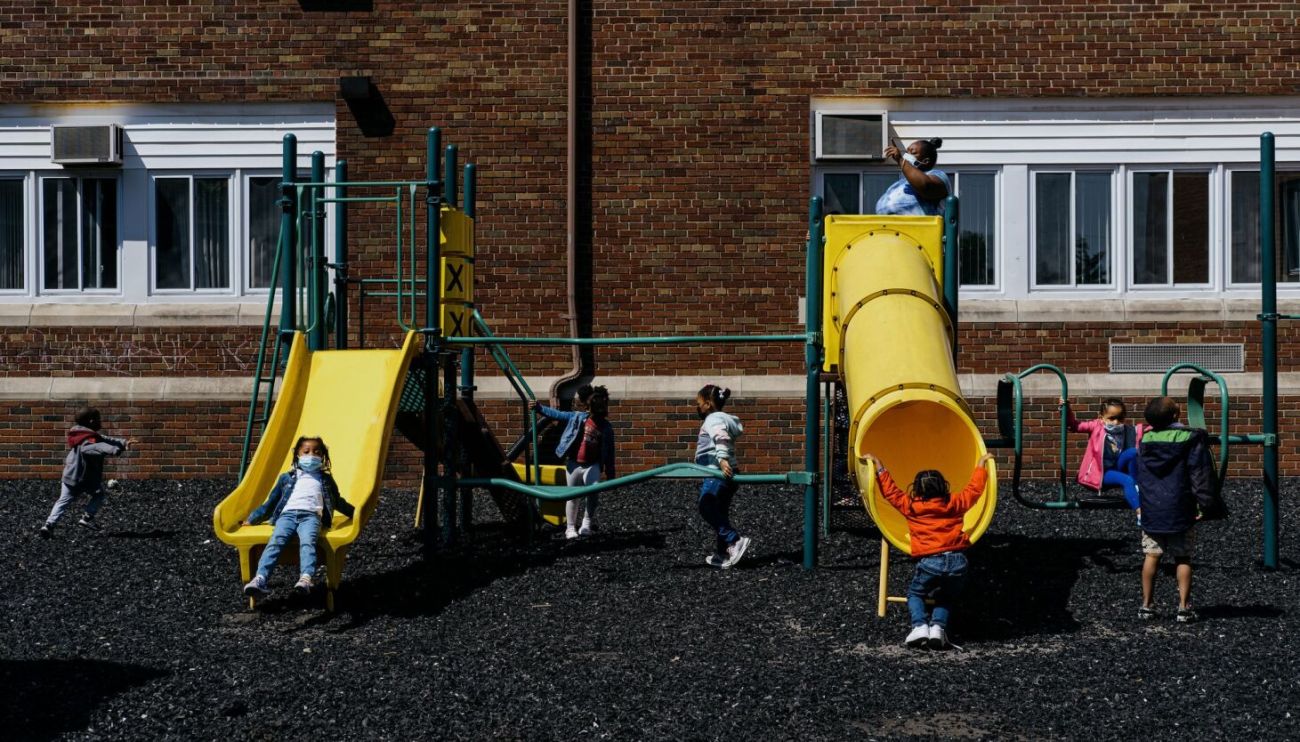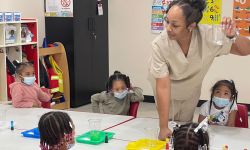Michigan is ‘improving outcomes’ for early childhood health and education, report says


Michigan is improving its outcomes for early childhood education, well-being, and health, according to a national report released Wednesday.
The annual report, by the nonpartisan research organization Zero to Three, details areas where Michigan performed better than national averages, such as the percentage of parents who read to their babies daily and the number of 1-year-olds participating in special supplemental nutrition programs.
The study looked at various indicators of health and well-being, such as maternal health; infant and early childhood mental health; availability of childcare; housing and economic security; as well as newly adopted policies to support health and education.
Related:
- How a Detroit pastor got involved in a citywide effort to reduce chronic absenteeism
- Michigan lawmakers consider making universal free school meals permanent
- Schools are cutting recovery programs as U.S. aid money dries up. Students are still struggling.
Based on the data, the authors grouped states into one of our categories. Michigan was in the second-highest category overall — “improving outcomes.” Other states in the same category include California, New York, Pennsylvania, Wisconsin, and Indiana.
In recent years, Michigan has invested millions of dollars to expand early childhood education initiatives.
Michigan still falls behind national averages in key areas, the report says, including the percentage of children ages 3 and younger in lower-income families who receive child care subsidies, the number of babies and toddlers who are food-insecure, the percentage of babies receiving preventive dental care, and the number of mothers reporting poor mental health.
Nearly 41 percent of Michigan children 3 and under come from families considered to be economically disadvantaged. The state has a higher percentage of uninsured young children in low-income families, compared with the national average, the report says, and a higher percentage of babies who have had two or more “adverse experiences,” such as economic hardship, death of a parent, or living with someone with a drug problem.
“Economic insecurity and particularly poverty literally gets under the skin of babies, impacting their neurological development as well as physiological systems,” Patricia Cole, an author of the report, said in a presentation.
Nationally, authors of the report say, there are urgent needs for the nearly 11 million children ages 3 and under in the U.S. — 2 million of whom live in poverty.
“The data from this report tell us that poverty and disparities in access to resources along racial and ethnic lines are defining features of a baby’s experience in this country,” said Miriam Calderon, chief policy officer Zero to Three. “Most of our babies will struggle with access to resources and that will affect their development.
The report identified five key priorities:
- Maternal and infant health is in “crisis,” with the U.S. experiencing the one of the highest maternal mortality rates in the world. According to the report, racial disparities in maternal and infant health outcomes worsened during the pandemic, with data showing significant gaps in indicators such as preterm births and low birthweight.
- Data included in the report suggests there is an urgent need to address young children’s mental health. Isolation and hardships during the pandemic created more emotional distress for parents, which was tied to the same in their children. Additional stress stemming from issues such as more poverty, housing instability, and mistreatment also affect parents and their children’s mental states.
- The report says there is a crisis in early child care and education, with scarce access to affordable, high-quality care in many communities. Many child care centers were negatively affected by the pandemic, and the impending end of federal relief funding will exacerbate the issue, the report says.
- The report found a large number of young children live in unstable or crowded housing. Crowded housing, the report says, puts children at risk of adverse effects to their development and health and, in some cases when combined with poverty, early death.
- Nearly two-thirds of Black and Native American and half of Hispanic babies and toddlers live in families that are considered economically disadvantaged, which can affect their families’ ability to access needed resources to support their development and education.
Hannah Dellinger is a reporter for Chalkbeat Detroit covering K-12 education. Contact Hannah at hdellinger@chalkbeat.org.
See what new members are saying about why they donated to Bridge Michigan:
- “In order for this information to be accurate and unbiased it must be underwritten by its readers, not by special interests.” - Larry S.
- “Not many other media sources report on the topics Bridge does.” - Susan B.
- “Your journalism is outstanding and rare these days.” - Mark S.
If you want to ensure the future of nonpartisan, nonprofit Michigan journalism, please become a member today. You, too, will be asked why you donated and maybe we'll feature your quote next time!


